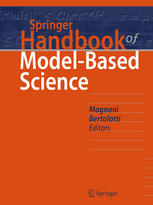

Most ebook files are in PDF format, so you can easily read them using various software such as Foxit Reader or directly on the Google Chrome browser.
Some ebook files are released by publishers in other formats such as .awz, .mobi, .epub, .fb2, etc. You may need to install specific software to read these formats on mobile/PC, such as Calibre.
Please read the tutorial at this link. https://ebooknice.com/page/post?id=faq
We offer FREE conversion to the popular formats you request; however, this may take some time. Therefore, right after payment, please email us, and we will try to provide the service as quickly as possible.
For some exceptional file formats or broken links (if any), please refrain from opening any disputes. Instead, email us first, and we will try to assist within a maximum of 6 hours.
EbookNice Team

Status:
Available5.0
23 reviewsThis handbook offers the first comprehensive reference guide to the interdisciplinary field of model-based reasoning. It highlights the role of models as mediators between theory and experimentation, and as educational devices, as well as their relevance in testing hypotheses and explanatory functions. The Springer Handbook merges philosophical, cognitive and epistemological perspectives on models with the more practical needs related to the application of this tool across various disciplines and practices. The result is a unique, reliable source of information that guides readers toward an understanding of different aspects of model-based science, such as the theoretical and cognitive nature of models, as well as their practical and logical aspects. The inferential role of models in hypothetical reasoning, abduction and creativity once they are constructed, adopted, and manipulated for different scientific and technological purposes is also discussed. Written by a group of internationally renowned experts in philosophy, the history of science, general epistemology, mathematics, cognitive and computer science, physics and life sciences, as well as engineering, architecture, and economics, this Handbook uses numerous diagrams, schemes and other visual representations to promote a better understanding of the concepts. This also makes it highly accessible to an audience of scholars and students with different scientific backgrounds. All in all, the Springer Handbook of Model-Based Science represents the definitive application-oriented reference guide to the interdisciplinary field of model-based reasoning.